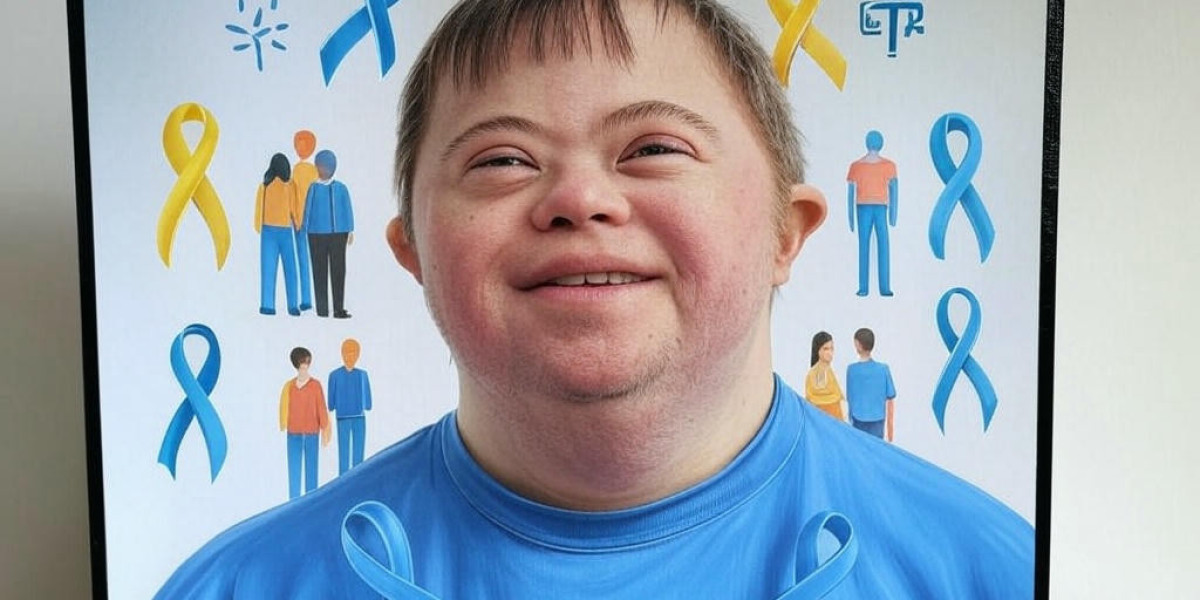Introduction
Down Syndrome Awareness is about promoting understanding, acceptance, and inclusion of individuals with Down syndrome. This condition, caused by the presence of an extra copy of chromosome 21, affects cognitive and physical development but does not define the potential of individuals who have it. Raising awareness is essential to foster a society that values and supports people with Down syndrome, helping them lead fulfilling lives.
What is Down Syndrome?
Down syndrome is a genetic condition that occurs when an individual has an extra copy of chromosome 21. This additional genetic material affects development and can lead to distinctive physical features, intellectual disabilities, and certain health conditions. Despite these challenges, individuals with Down syndrome can live meaningful lives, pursue education, build careers, and contribute positively to their communities.
There are three types of Down syndrome:
Trisomy 21: The most common form, accounting for about 95% of cases, where every cell in the body has an extra copy of chromosome 21.
Mosaic Down Syndrome: A rare form where some cells have an extra chromosome 21 while others do not.
Translocation Down Syndrome: Occurs when an extra chromosome 21 is attached to another chromosome, present in about 3-4% of cases.
Importance of Down Syndrome Awareness
Promoting Inclusion and Acceptance
Raising awareness encourages the inclusion of individuals with Down syndrome in schools, workplaces, and social activities. By educating the public, we can break down stereotypes and misconceptions that often lead to discrimination.
Advocating for Rights and Opportunities
Awareness campaigns help promote equal rights, better healthcare, educational support, and employment opportunities for individuals with Down syndrome. Advocacy ensures that policies and laws protect and empower them.
Supporting Families
A Down syndrome diagnosis can be overwhelming for parents and caregivers. Awareness initiatives provide information, resources, and emotional support to families, helping them navigate the journey and connect with supportive communities.
Myths vs. Facts about Down Syndrome
Myth 1: People with Down syndrome have a short lifespan.
Fact: Due to medical advancements, many individuals with Down syndrome live well into their 60s or beyond with proper healthcare and a healthy lifestyle.
Myth 2: Individuals with Down syndrome cannot lead independent lives.
Fact: Many individuals with Down syndrome complete education, work in various industries, and live semi-independently with appropriate support.
Myth 3: Down syndrome is a rare condition.
Fact: Down syndrome is the most common chromosomal condition, affecting about 1 in every 700 babies born worldwide.
Myth 4: Children with Down syndrome cannot learn.
Fact: While individuals with Down syndrome may learn at a different pace, they can acquire skills, pursue education, and achieve personal goals with proper support.
Ways to Support Down Syndrome Awareness
Participate in Awareness Events
Organizations hold walks, marathons, and other events to spread awareness and raise funds for Down syndrome research and support programs. Participating in these events can make a difference.
Educate Yourself and Others
Reading about Down syndrome and sharing accurate information can help dispel myths and misconceptions. Schools and workplaces can conduct awareness programs to foster an inclusive environment.
Advocate for Inclusive Policies
Support policies that promote better education, healthcare, and employment opportunities for individuals with Down syndrome. Engage with policymakers and organizations working for disability rights.
Support Families and Caregivers
Offer emotional and practical support to families with loved ones who have Down syndrome. Simple gestures like checking in, assisting with daily tasks, or connecting them with helpful resources can be invaluable.
Conclusion
Understanding Down Syndrome Awareness is crucial in creating a more inclusive and supportive society. By educating ourselves, advocating for rights, and fostering acceptance, we can ensure that individuals with Down syndrome have the opportunities and support they need to thrive. Every person, regardless of their genetic makeup, deserves respect, dignity, and a chance to live a fulfilling life. Let’s work together to spread awareness and build a world that celebrates diversity and inclusion.















